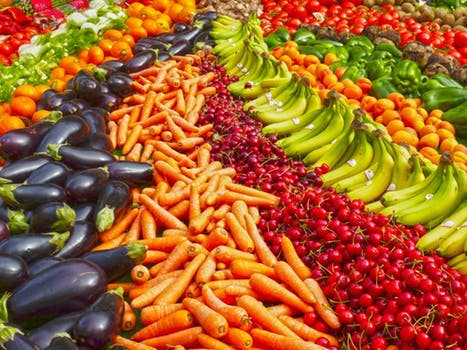Posted: May 13, 2018

A beverage made from pressed grapes must be vegetarian, right? Well, some winemaking techniques can make certain bottles a no-go for the animal-friendly crowd. Learn how animal derivatives end up in your wine, and how to spot vegetarian- and vegan-friendly wine.
Wine is made from grapes, but that does not necessarily make it vegetarian or vegan. Some winemaking methods make surprising use of animal-derived products, which is why an increasing number of producers state whether the wine is vegan or vegetarian on the label. But what does it mean?
Some winemaking basics first: Traditionally, winemaking is a slow process. Pressed grape juice needs to settle before fermentation and as new wine after fermentation to let suspended solids sink to the bottom of the tank or barrel.
As the wine continues to mature, usually over the winter following harvest, it further clarifies as residual solids also begin to sink to the bottom where they add to the sediment. In effect, the wine clarifies itself in this slow, natural process. Often, wine made in this way is bottled “unfiltered and unfined,” simply because it was allowed to go through all of these natural processes in its own, sweet time.
Modern wine styles and market pressures, however, demand a faster process. Science has perfected ways of doing that and the slow clarifying process that happens gradually during maturation in the cellar is sped up by the process known as fining.
During fining, animal products are often used as “processing aids.” They are added to wine in order to bind and remove unwanted substances, all of which are then filtered out. This is the reason why fining agents are not labeled as ingredients on the final bottle of wine.
While fining can also be used to correct winemaking faults like off flavors, colors, cloudiness or to smooth tannins, it’s often done to stabilize wine that has not had time to clarify itself naturally over time. This speeds up the time between grape and glass and makes many modern wines so affordable.
Let’s take a look at which animal products are used, and why.
Egg whites
The simplest, most old-fashioned way of fining is still practiced at many Bordeaux châteaux. Red wines made from Cabernet Sauvignon are full of heavy, astringent tannins when still in the barrel. By adding natural egg whites to the barrels, stirring and allowing them sink to the bottom, the harshest tannins are removed.
This technique works because young tannins have a natural negative ionic charge, while the egg whites have a positive charge. As they are mixed in the barrel, the negatively charged tannins bind to the positively charged egg whites. They then sink to the bottom, and the clear, less-tannic wine can be run off. Powdered egg whites can also be used.
Verdict: Vegetarian, but not vegan.
Other animal derivatives
Many other products used to remove excess solids, off flavors and excess phenolics (tannins in both red and white wines) are also derived from animals. Here are some common examples used in winemaking.
Casein
A protein found in milk, casein is used in winemaking to give white wines a brilliant clarity and remove oxidative taint. Sometimes, skim milk is used to achieve this, like with very clear Sauvignon Blancs.
Verdict: Vegetarian, but not vegan.
Gelatin
A protein derived from animal hides and bones, gelatin can be used on both red and white wines. Red wines can gain suppleness, while whites can attain brighter color, though often at the expense of tannins.
Verdict: Neither vegetarian nor vegan.
Isinglass
Derived from the swim bladders of sturgeon and other fish, isinglass was used far more widely in the past. It gives white wines brilliant clarity by removing solids and excess color.
Verdict: Neither vegetarian nor vegan.
Chitosan
A carbohydrate, chitosan is derived from the shells of crustaceans. It has a positive ionic charge and is used to remove excess color and phenols from white wines.
Verdict: Neither vegetarian nor vegan.
Does that mean that all wines labeled ‘vegan’ are unfined?
Not necessarily. There are plenty of fining agents that are not derived from animals that can be used to fine vegan wines.
Poly-vinyl-poly-pyrrolidone (PVPP)
PVPP is a man-made plastic substance which absorbs excess phenols and colors. PVPP is often used to give rosé wines their elegant pallor.
Verdict: Vegetarian and vegan.
Bentonite
Bentonite is purified clay and has a negative charge. It binds protein colloids in white and rosé wines, and also makes them heat-stable. Activated charcoal can also remove prominent off flavors, but can strip wine of other desirable ones.
Verdict: Vegetarian and vegan.
What about farming?
Some vegans go beyond the winemaking process and also look to see if animal products were used in farming. They object to animal-derived fertilizers like bone meal (from dead livestock) or fish emulsion (from fish waste) in favor of plant-based composts.
What’s a vegan or vegetarian to do?
Look at the back label, or ask your merchant. More wine producers pay attention to this as consumers demand transparency.
By Anne Krebiehl MW
May 9, 2018
Source: Winemag.com
Go-Wine's mission is to organize food and beverage information and make it universally accessible and beneficial. These are the benefits of sharing your article in Go-Wine.com


The Wine Thief Bistro & Specialty Wines is a locally owned small business in downtown Frankfort, IL offering world class wines in a relaxed, casual gathering spot for friends and family. Offering world class virtual tastings and touchless carryout.
https://www.twtwineclub.com/aboutus
Go-Wine 25 Great Wineries in US selection prioritizes quality, value and availability.
www.go-wine.com/great-wineries-in-america
Tasting wine is a nice experience, but visiting the places in which wine is made is a magic moment. Available in New York City for touchless pickup.